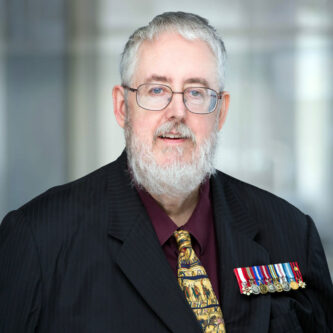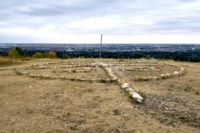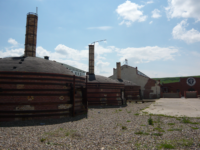NASA honouring U of L alumnus
By Lethbridge Herald on April 24, 2024.
 Submitted photo -
Former Lethbridge resident Austin Mardon is being awarded NASA's medal for Diversity, Equity, Inclusion and Accessibility.
Submitted photo -
Former Lethbridge resident Austin Mardon is being awarded NASA's medal for Diversity, Equity, Inclusion and Accessibility.NASA today will be awarding its medal for Diversity, Equity, Inclusion and Accessibility to former Lethbridge resident Austin Mardon, a professor at the University of Alberta and graduate of the University of Lethbridge in 1985.
The award, to be presented in one of two ceremonies today at NASA’s headquarters, is “for exemplary scholarship, advocacy, and commitment to promoting NASA’s principles of diversity and inclusion in community organizations and among the disenfranchised.”
It is being presented to Mardon for his exemplary contributions to promoting inclusivity within space exploration and beyond.
Mardon, who was named one of U of L’s distinguished alumni in 2002, was also given an honorary degree by the university in 2014.
“I am very touched by the medal. It felt like coming home,” said Mardon in a statement provided to The Herald.
“I applied in Canada to be an astronaut when I was a young man before I got sick so to receive a NASA medal at my age after everything that has happened is a lot.”
Mardon, at the age of 24, began investigating meteorite impacts near the South Pole as a junior member of an Antarctic meteorite recovery expedition which was sponsored by NASA and the National Science Federation a year after he graduated with a major in geography from the U of L. The goal of that project was to recover blue ice surficial meteorites and resulted in the discovery of more than 700 meteorites.
For his work he was given the U.S. Antarctic Service Award but according to his biography at austinmardon.org, the hardships of the expedition affected him mentally and physically. Health issues persisted after he earned Masters degrees in science and education and at the age of 30, he was diagnosed with schizophrenia.
Mardon, who leads the Antarctic Institute of Canada, has participated in multiple NASA-associated missions.
“Austin’s dream of space exploration was curtailed by the onset of schizophrenia and mobility challenges from frostbite. Undeterred by this challenge, he completed a PhD in geography and embarked on a multifaceted career spanning geography, planetary science, mental health, political history, and theology,” says NASA in a description of today’s honour.
“Austin’s sustained dedication to the mental health and disability communities, carrying the banner of space and science, exemplifies a model of Diversity, Equity, Inclusion, and Accessibility (DEIA) deserving of recognition.
“From the perspective of a community member and person with disability, Dr. Mardon has displayed enduring leadership within organizations such as the Mental Health Commission of Canada, the Premier’s Council on the Status of Persons with Disabilities, and the Alberta Mental Health Self-Help Network. Over the past 29 years, he delivered hundreds of speeches addressing disabilities and DEIA concerns. Austin openly shares his experiences, transforming his debilitating illness into a narrative of humanity, shedding light on the stigma he faced to dismantle barriers isolating individuals with mental health conditions,” NASA adds.
Mardon has more than 500 publications on a wide range of subjects to his credit and says NASA, along with his students has written a number of books and articles on various topics including the cosmos, physics and solutions for interstellar travel.
“As President of the nonprofit Antarctic Institute of Canada, Austin has spearheaded over $4 million CAD in internship programs aimed at enhancing student writing and literacy skills while exploring the impacts of COVID-19 on society and issues especially pertinent to NASA including space economics, climate change, and resource distribution. To date, this initiative provided employment to ~600 Canadian and international students. Notably, many of these students hailed from marginalized communities, encompassing racial, cultural, ethnic, and sexual minorities, as well as disabled individuals,” adds NASA.
The agency says his leadership also extends to NASA’s goals of extending humanity’s presence deeper into space.
Mardon was named a member of the Order of Canada in 2006.
17-16




